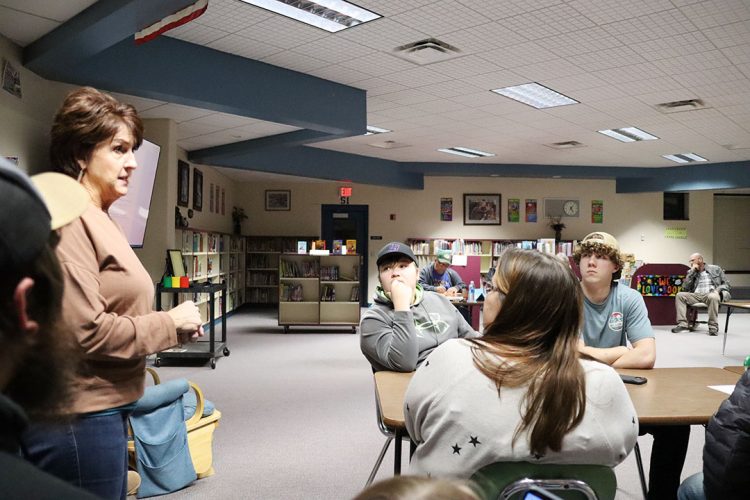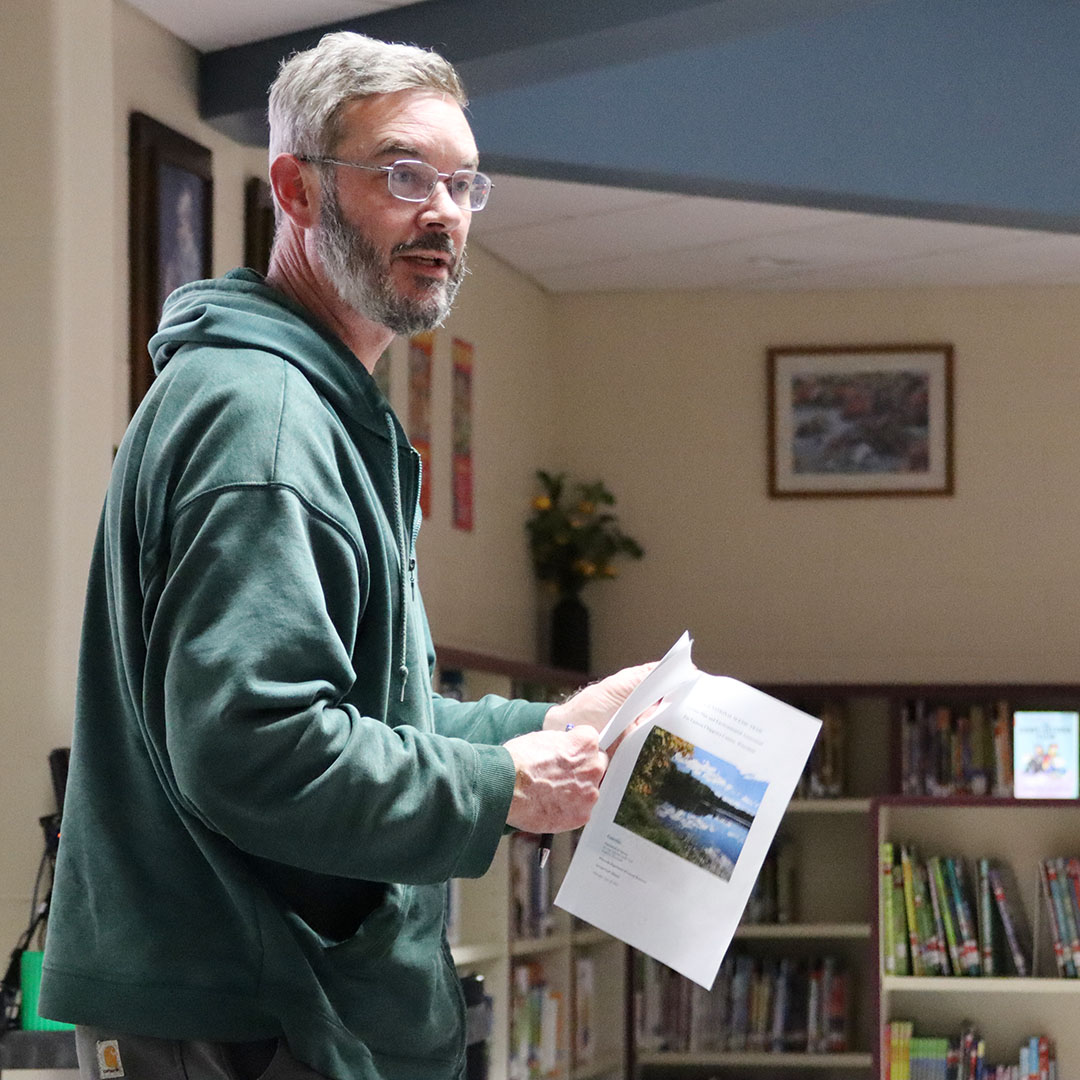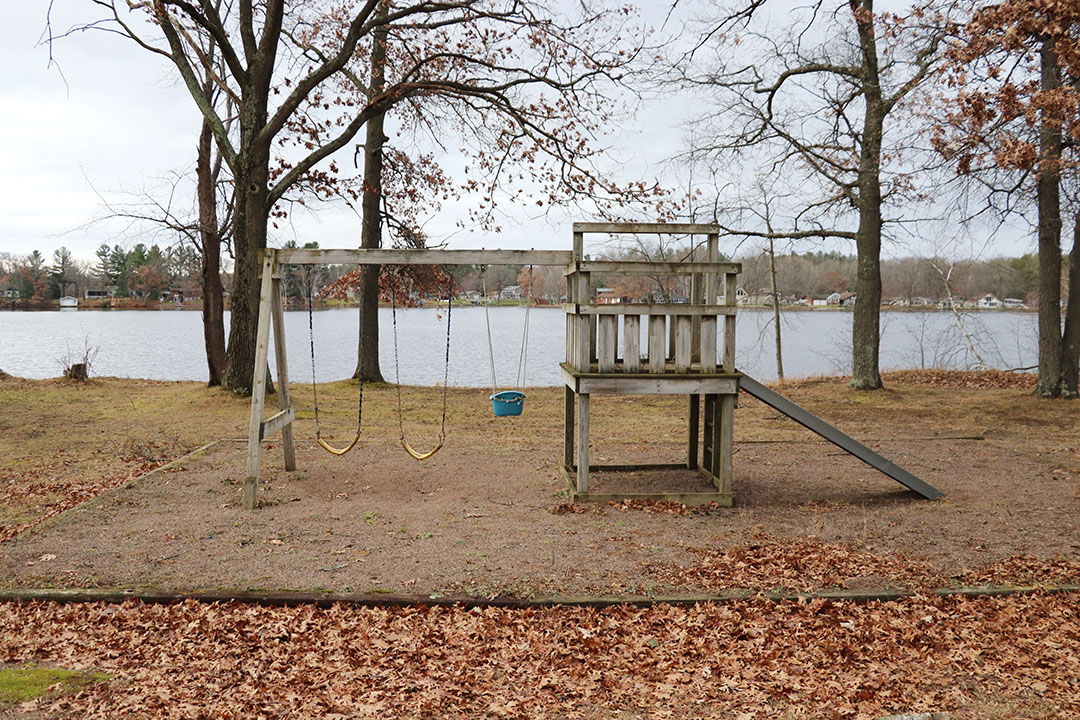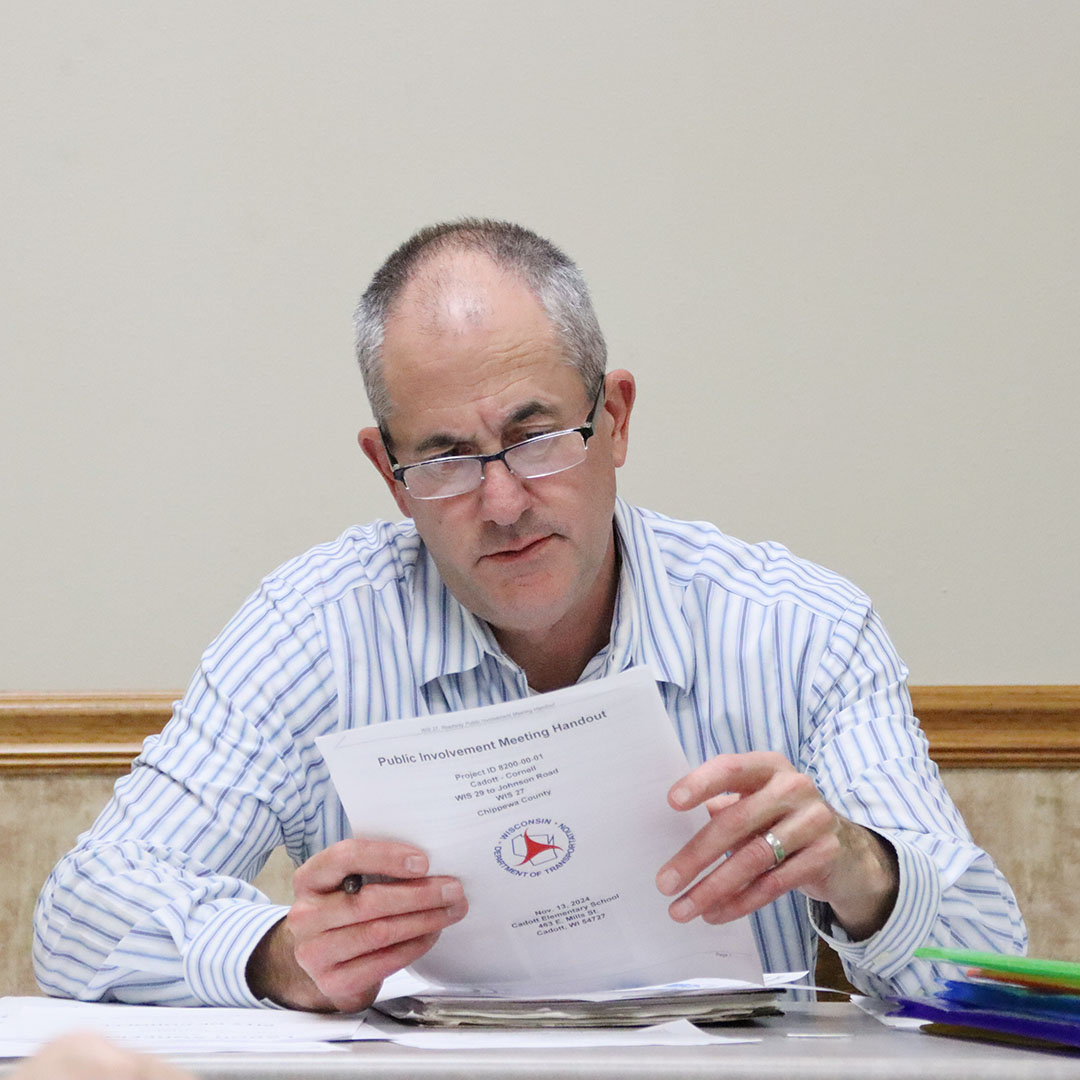Community lets voices be heard on what’s best for kids


Lisa Martino, a long-time supporter of Cornell and Lake Holcombe athletics, spoke Nov. 25, at the Cornell board of education meeting, in favor of continuing the spring sports co-ops with Lake Holcombe. Amid a standing room only crowd, Martino and almost 40 parents, grandparents, business owners and students from both districts, voiced their wishes to keep the co-ops in place. Photo by Ginna Young
By Ginna Young
After the last Cornell School Board meeting in October, concern arose from residents in Cornell and Holcombe, about the possibility of spring sports co-ops lapsing. One reason given, was that after Lake Holcombe’s board of education dissolved the football co-op a few years ago, it left a bad taste in the mouth.
Cornell administrators also felt that they could man their own teams, but wanted input before making such a critical and long-lasting decision. They asked and they received, in force, at the Cornell School Board meeting Nov. 25.
Filling the Cornell Elementary School IMC, there was standing room only, as parents, grandparents, business owners, coaches and students, voiced their thoughts on the matter.
Chad Spegal, Cornell resident, current Cornell football coach and an original instigator of the softball co-op, pointed out that numbers have dropped dramatically in participation for all the sports.
“The board has to consider the overall picture – what’s the best for the kids?” he said.
Cornell resident and business owner, and Lake Holcombe grandparent Lisa Martino, shared that her grandson was heartbroken to think he might not have a baseball team to play on. She also knows it’s hard when only eight players are on a team, so Cornell and Lake Holcombe need the numbers of a co-op.
“There are injuries, they’re tired,” said Martino. “I just want to give all the kids an opportunity to play.”
Martino remembers when Cornell used to have CTeam, JV and varsity teams, as well as 40 track athletes.
“There’s no reason we can’t have that, if we can all just get along, put aside the differences…it’s about the kids and their future,” she said.
Having a somewhat unique point of view, as her children attended both school districts, Cornell resident and Lake Holcombe parent Ashley Carothers, admits she a first wanted to end all the co-ops when the football one dissolved, but has since grown to understand the implications of such a move.
“These kids do not care about emotionally charged adults,” said Carothers. “All they want to do is play.”
Carothers pointed out that most of the kids have played together on teams or in the sandbox at games, since they were three years old. While the numbers are holding strong in youth programs, she has seen what happens when the kids get older and don’t go out for sports.
“If we end any more co-ops, our sports are done for,” agreed Cornell parent Phylicia Smith.
Smith said the numbers on sports teams, such as football, really makes for the kids getting “beat up” from larger teams, because they don’t have enough athletes to play the positions. She’s offered to open enroll her kids to another district, but they’ve turned her down, as they want to stay in Cornell.
To Smith, that shows the dedication is there, if it can be cultivated.
Cornell teacher, parent and youth sports member Shannon Thon, showed that the figures for last year’s softball programs are telling, as 10U saw 18 players, but 12U had only 12, while the 14U was combined with Holcombe. Neither town were able to field a team and ended with only nine players.
“That directly feeds your high school program,” said Thon.
In youth baseball, the Minors team had 13 players, while the Majors saw 14 and the combined Pony team fielded 11. Without co-oping the youth, there would not have been kids to play.
“We would not have had those opportunities for students to play, to build those fundamental skills before going directly to the high school program,” said Thon.
Allison Ducommun, Cornell School District employee and current assistant softball coach, says the co-ops give the programs the bodies to fill in spots and have a successful season, allowing a chance to build off the youth program.
“I learned so much from those Cornell girls and Cornell coaches, that it shaped me, the person I am today,” said former softball athlete Kaitlyn Heinzen.
Cornell parent Amy Hugh mentioned that some kids have options to go other places, if there are no sports in their district, but that others don’t. In that case, an opportunity is lost for them. “It’s even more likely you’re not going to draw additional students to the school,” said Hugh. “But, it’s highly likely you will lose students to chase the sports.”
Parents weren’t the only ones to speak, as the students felt as passionate about the matter as the adults – perhaps more so.
Lake Holcombe student Logan Jaedike shared that it was upsetting to think that neither school would have a track team, if the co-ops dissolved and Lake Holcombe certainly would not, since they do not have a facility. For Jaedike, that was distressing.
“Especially after putting so much money into the new track,” he said.
Cornell student Grady Abbott does not believe Cornell will have a track team, without the kids from Lake Holcombe. With the new standards recently installed for pole vaulting and a renovated long jump, Abbott, who plays a different sport, nonetheless did not want to see the co-op go away.
“I think if we disband the co-op, all that would kind of go to waste,” said Abbott.
Wesley Smith, Cornell student, said that it was hard to even field a baseball team last year, even with a co-op, because of players lost to vacations, other activities, injury and bad grades. Smith would like to have a fundamental JV team, to give more experience.
Lake Holcombe student and Cornell resident Donovan Bera, was excited that last season, the two schools finally had a baseball team for the first time in several years, even with low numbers.
“Our two schools came together, we finally made a team, we made it work,” he said.
“Without the co-op, I don’t think the numbers will be there,” said Cornell student Bryce DeJongh.
With so many speaking up for what is important to them, the Cornell board of education unanimously agreed to renew the spring sports co-ops, which was done the week before by Lake Holcombe. Board members said they appreciated everyone sharing their views and coming together for a common cause.
Amanda Gudis also has a unique perspective, as she lives in Cornell, coached volleyball in Lake Holcombe and teaches at Flambeau. While the students are competitive during the games, they stay friends and help each other when needed, which is why she also wants the hard feelings to be put aside.
“They’re kids, they’re a community,” said Gudis. “There’s no segregation to me.”
Several echoed the sentiment that Cornell and Lake Holcombe schools should combine, to pool resources and increase opportunities for the students. It was agreed that in order to make that talk happen, community members would need to approach school board members, faculty and administration, stating that they want an open discussion on the topic and to see if it is feasible.
“We’ve always been open to a possibility,” said Cornell superintendent Paul Schley.
Eileen Sikora, Cornell School Board clerk, feels that the students in both communities are acting more adult than many of the adults in their lives and wants to see that sense of togetherness continue.
“And, I think we should start listening to our kids,” said Sikora.






